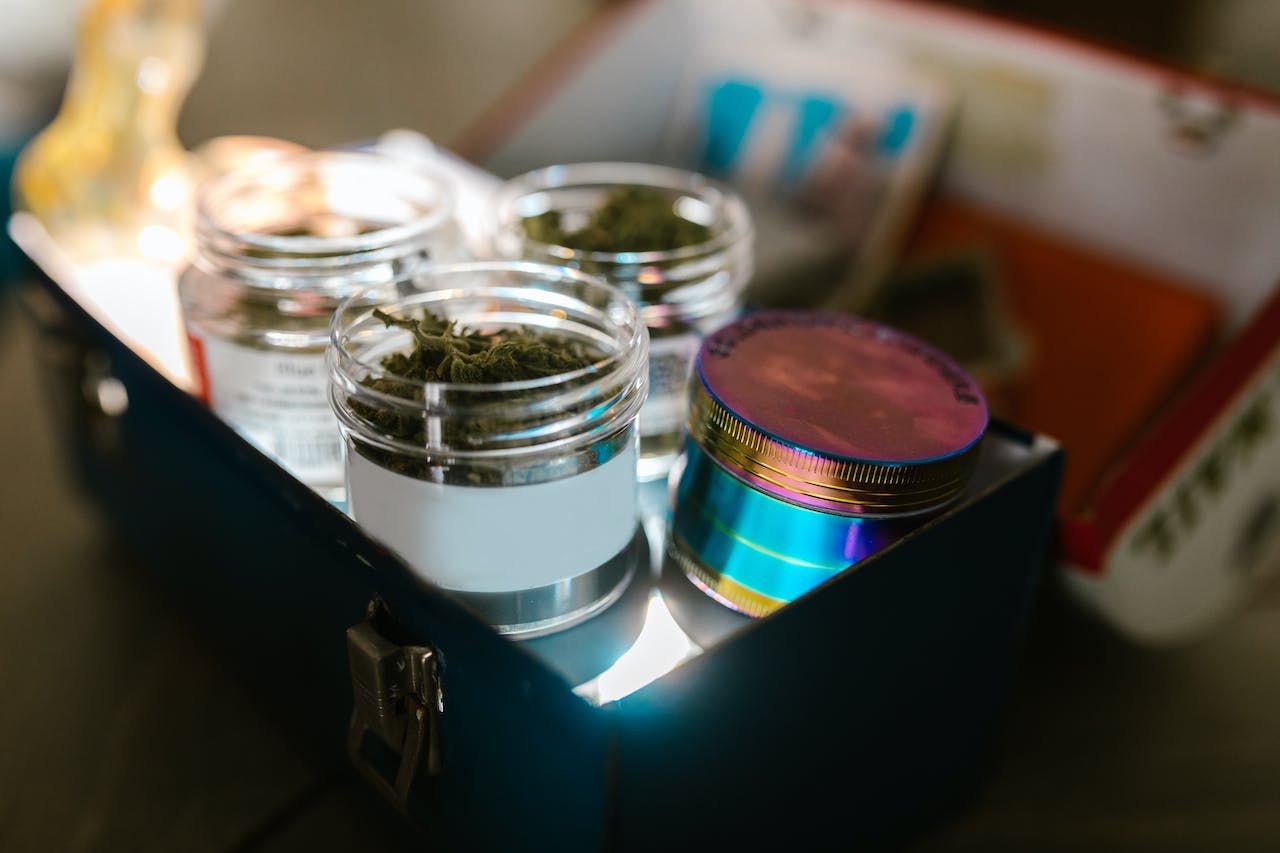Cannabis
Cann-L Project: First Legal Cannabis Dispensary Opens in Lausanne, Switzerland
In Cann-L store, recreational cannabis will be sold for between 9 and 12 Swiss francs per gram (40 – 55 zloty), depending on THC content. These prices correspond to those on the black market, with the aim of encouraging consumers to choose a legal and regulated alternative. To avoid over-consumption, Cann-L participants are allowed to buy a maximum of 10 grams of cannabis at a time.

The first legal cannabis dispensary opens this Monday in Lausanne, Switzerland. In response to the passage of federal legislation for a pilot cannabis sales program in 2021, the city of Lausanne has approved the Cann-L project to “experiment with cannabis sales” in order to monitor black market dynamics and assess the impact on consumer behavior.
Read more about the Cann-L project and the first legal cannabis dispensary that opens in Switzerland, and find the most important cannabis news from around the world with the Hemp.im mobile app.
Four varieties of cannabis available in the Cann-L store, from 5 to 15% THC
At first glance, the Cann-L store in Lausanne is very different from what one would expect from a cannabis store. The store boasts a “modest facade and minimalist interior,” deliberately avoiding promoting its products.
Frank Zobel, deputy director of Addiction Suisse, stresses that the goal is not to encourage consumption, but rather to offer consumers a wise choice. The store will offer three-gram packets of herbs named Alpha, Beta, Gamma and Delta, with THC content ranging from less than 5% to more than 15%. Hashish is also expected to be added to the offerings soon.
Mr. Zobel explained the reason for this selection of products: “On the black market, people buy what they find. Often these are very strong products, but weaker products could also suit them.”
All products sold in the store come from plantations in the canton of Vaud and are organically grown. There are plans to expand production to other locations depending on demand. The exact location of the cultivation remains confidential for security reasons.
In Cann-L, recreational cannabis will be sold for between 9 and 12 Swiss francs per gram (40 – 55 zloty), depending on THC content. These prices correspond to those on the black market, with the aim of encouraging consumers to choose a legal and regulated alternative.
To avoid over-consumption, Cann-L participants are allowed to buy a maximum of 10 grams of cannabis at a time and may not consume more than 10 grams of pure THC per month, or 50 grams of cannabis with 20% THC content.
Customer experience and interaction
The Cann-L store was designed as an immersive and educational space. A team of seven people, trained specifically for this purpose, will assist customers. The store offers an informal conversation space where customers can engage in discussions about cannabis. Selected brochures provided by Addiction Suisse will contribute to the educational aspect of the experience, ensuring that consumers have access to accurate and relevant information.
The first 250 enrolled participants are between 35 and 37 years old on average, and 80% of them are men. They consume cannabis daily or almost daily. To facilitate transactions, participants will receive personal cards that not only allow them to purchase cannabis, but also serve as proof of possession in the event of a police check.
The scientific study behind the Cann-L project aims to assess the impact of nonprofit cannabis sales on consumer behavior. Participants will be required to complete a survey every six months to gather valuable data and understand the evolution of cannabis consumption in a regulated market.
—
(Featured image by RDNE Stock Project via Pexels)
DISCLAIMER: This article was written by a third-party contributor and does not reflect the opinion of Hemp.im, its management, staff, or its associates. Please review our disclaimer for more information.
This article may include forward-looking statements. These forward-looking statements generally are identified by the words “believe,” “project,” “estimate,” “become,” “plan,” “will,” and similar expressions. These forward-looking statements involve known and unknown risks as well as uncertainties, including those discussed in the following cautionary statements and elsewhere in this article and on this site. Although the company may believe that its expectations are based on reasonable assumptions, the actual results that the company may achieve may differ materially from any forward-looking statements, which reflect the opinions of the management of the company only as of the date hereof. Additionally, please make sure to read these important disclosures.
First published in Fakty Konopne, a third-party contributor translated and adapted the article from the original. In case of discrepancy, the original will prevail.
Although we made reasonable efforts to provide accurate translations, some parts may be incorrect. Hemp.im assumes no responsibility for errors, omissions or ambiguities in the translations provided on this website. Any person or entity relying on translated content does so at their own risk. Hemp.im is not responsible for losses caused by such reliance on the accuracy or reliability of translated information. If you wish to report an error or inaccuracy in the translation, we encourage you to contact us.

-

 Crowdfunding1 week ago
Crowdfunding1 week agoBSG Stahl Riesa Launches Crowdfunding for New Floodlights
-

 Africa2 weeks ago
Africa2 weeks agoMASI Surge Exposes Market Blind Spot: The SAMIR Freeze and Hidden Risks
-

 Cannabis4 days ago
Cannabis4 days agoSnoop Dogg Searches for the Lost “Orange” Cannabis Strain After Launching Treats to Eat
-

 Crypto2 weeks ago
Crypto2 weeks agoIntesa Sanpaolo Signals Institutional Shift With Major Bitcoin ETF Investments

























